I’m a bit of a contrarian, I admit, and the older I get, the more contrarian I feel. Maybe I’ve spent too much time in classrooms playing devil’s advocate with students whose minds I’m trying to stretch, or maybe I’m just seeing things through midlife-crisis goggles. These days I often find the “plainest” and “simplest” plants beautiful — I swoon over grasses and twiggy shrubs and run past anything fuchsia or orange. In any case I am most certainly not looking forward to spring. Not one bit. Here’s why.
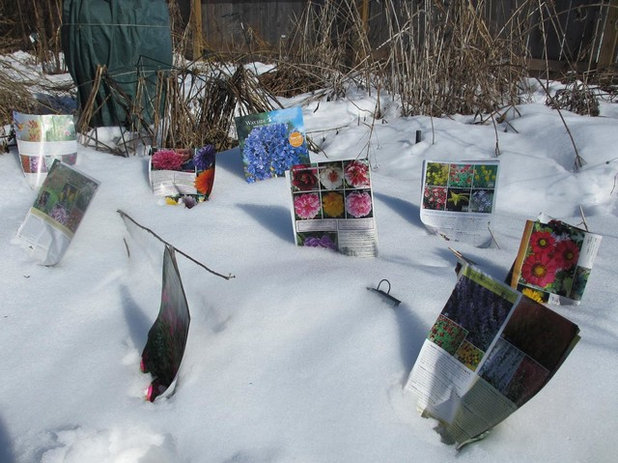
Benjamin Vogt / Monarch Gardens
1. The flood of plant catalogs. I don’t read them, because I now raise my own perennials. Besides, when I plant the catalogs nothing grows — they just sit there and get mushy. The things are clearly designed to make me feel inadequate about my gardening skills and insinuate that I’m missing something in my life. The only thing I’m missing is an empty recycling bin. I suppose it’s good to support the postal service, though, so keep sending me catalogs.
See how to be your own wildflower nursery

Janet Paik
2. Cutting down the garden. I admit it’s nice to get out on a freakily warm mid-March day and start cutting down the perennials, but it’s also emotionally nerve-racking. I get nostalgic out there — as soon as I bend down to cut a warped liatris stalk, I remember the butterfly that took nectar there in August, how it and a bumblebee leapfrogged each other as they walked in opposite directions around the bloom — so purposeful, so in harmony, like ballroom dancers. How can I cut down that memory and just toss it into the compost heap? One year I left that liatris stalk up well into June. Sigh.
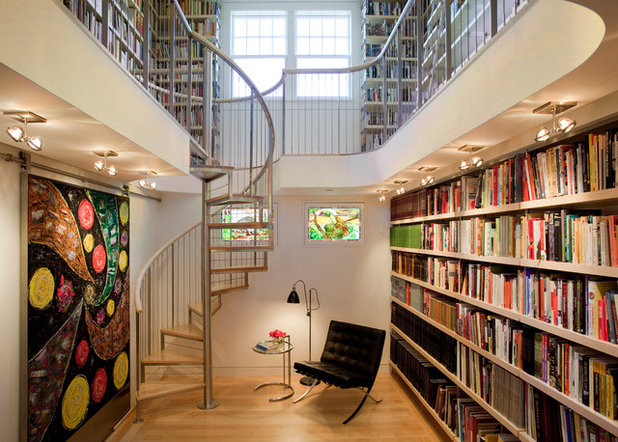
Siemasko + Verbridge
3. Winter work is awesome. I get the most reading and writing done in winter. It’s awesome. So energizing. I’m snug as an overwintering mourning cloak butterfly in leaf litter. I can work on book manuscripts while sipping hot chocolate or green tea. My cat seems more amenable to my body heat and snuggles me as I read an article on the chair. Everything is in its place, and everything is right in the world. Winter brings me home.
See how to cozy up your reading spot
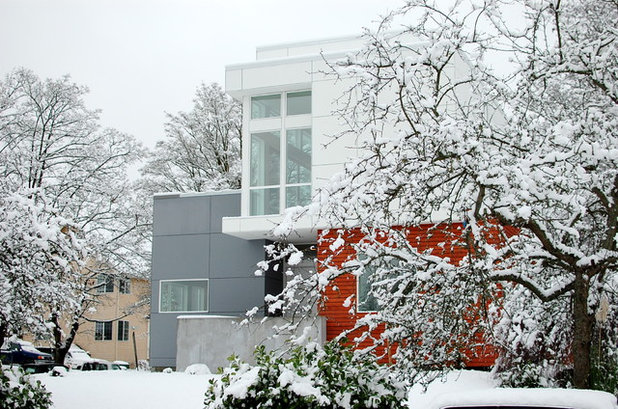 4. Winter gardens are sensuous echoes.
4. Winter gardens are sensuous echoes. I think the absence of a thing is a more profound reality of that thing. I know, that’s deep. But how does that song go — you don’t know what you’ve lost until it’s gone?
The “loss” of flowers and green in the garden is actually a gaining of the true essence of those flowers and the green. I can see the garden so clearly, an X-ray-vision thing. It’s like I’ve slept really well and woken up energized, and the light of heaven shows me what’s working and what isn’t in the garden. I can see what plants are just not pulling their weight, where I need vertical accents, where I need some grasses, what’s empty and what’s died out.
Designing a winter garden is way more exciting than designing in the cacophony of summer — but maybe I just like pushing the limits within a limiting palette.
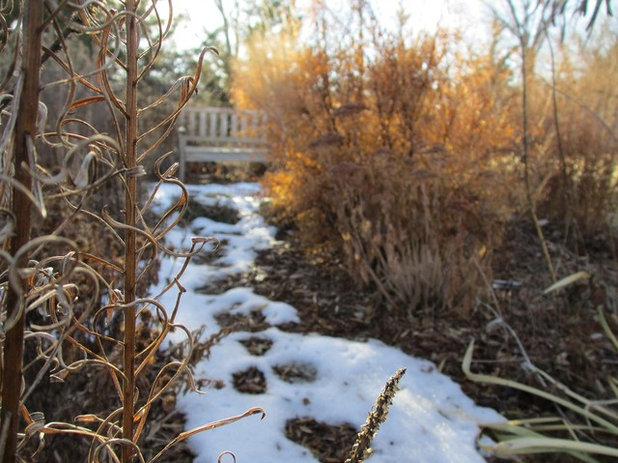
Benjamin Vogt / Monarch Gardens
5. Winter means no rushing and no distractions. The older I get, the more I feel overwhelmed by the garden. Not the effort, because I work only one or two days a year in my garden, but the color, the flying things, the deep folds of shadows and the sparks of petals contradicting the empty space of air and sky.
I know, a landscape designer shouldn’t be saying any of this. I feel like I have to go outside every day in summer, and sometimes I don’t want to, but I’m afraid I’ll miss something. It’s like checking my Facebook feed every hour — I start to feel more frenetic and disconnected. In winter I feel more present, more centered, more at peace. Clarity is standing still.
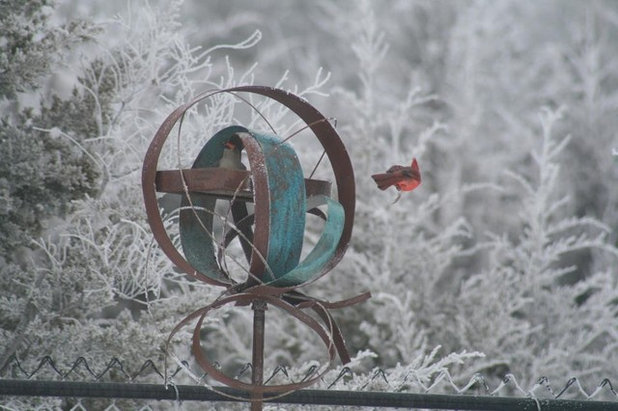
Benjamin Vogt / Monarch Gardens
6. There’s less negative space in spring. I need the negative space of winter, that place that eases the senses after a rush of color, sound and texture. Good garden design balances and confronts opposites. After encountering a gorgeous vista or complicated planting bed, it’s necessary to have an open field of view, a skyline, a sitting area, an expanse of water or a meadow that’s sort of monochromatic.
This is what winter is to me — a moment when I can gather my thoughts, recharge and put down new roots just as the plants outside are doing. This is why I will always cherish winter, trying my best to live equally in its moments as I do the other seasons’. In the end I suspect I’ll be more balanced and in tune with a landscape’s nuances. Perhaps I’ll be a better gardener.
More: Simple Pleasures: Get Centered





